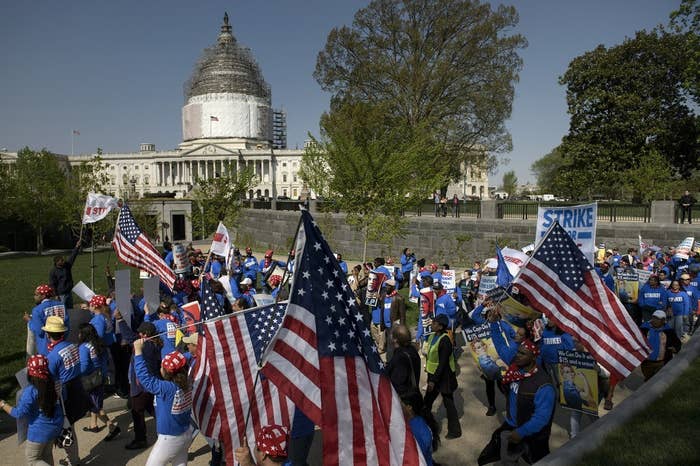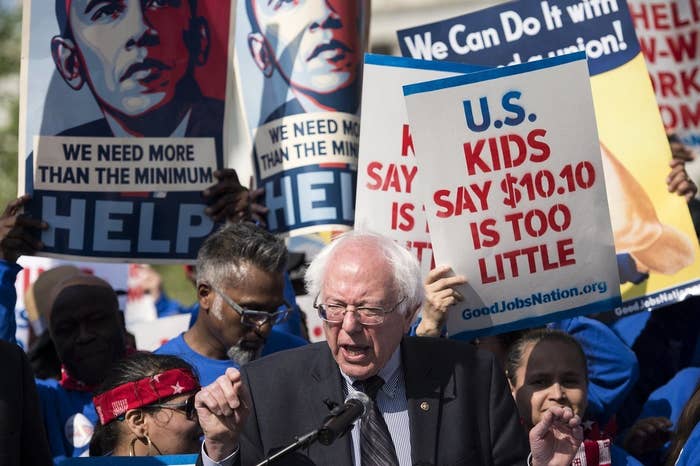The nationwide campaign for an increase to the minimum wage reached the U.S. Capitol building Wednesday, as workers in Senate offices and other federal buildings held a day-long strike.

U.S. Senate cafeteria workers and janitors were among those who marched through Washington D.C. on Wednesday morning, stopping on the lawns outside the Capitol to demand a $15 minimum wage.
"They feed the generals in the Pentagon, they also personally serve U.S. senators, some of whom are running to be the next president of the United States," Good Jobs Nation Campaign Director Joseph Geevarghese told the crowd. "These workers strike because they want our nation to know that their taxpayer dollars are keeping everyday Americans in poverty."
Good Jobs Nation, an offshoot of the labor federation Change to Win, is campaigning for President Obama to sign executive orders that would force federal agencies to give preference in contract bidding to privately-owned businesses that pay workers a $15 minimum wage.
In February 2014, the president signed an executive order that raised the minimum wage to $10.10 for all workers on federal construction and service contracts. However, labor activists say the increase is not enough.
Among those supporting the campaign was independent Sen. Bernie Sanders of Vermont, who told the demonstrators that a higher wage is needed.

"What we're saying today is pretty simple," Sanders said. "The taxpayers of this country want to make sure that when government contracts are made those employers who get those contracts pay employees a living wage, that they allow their workers to form a union, that they provide good benefits to their workers."
BuzzFeed News has sought comment from the National Association of Government Contractors, but the group said last September, that after the president's executive order and other regulations went into effect, federal contractors have been burdened by the increasing costs.
"The changes mean rising compliance costs and barriers to entry into contracting for small to mid-sized contractors without the resources to keep up with the ever-evolving regulatory demands," wrote Simon Brody, the group's communication officer.
Across the United States, unions have been making increasing demands on all levels of government to raise the minimum wage. Earlier this month, fast food workers staged a national day of protest. Organizers labelled it the largest demonstration of underpaid workers ever. Also this year, Target and Walmart raised their minimum wages to $9 an hour.
As part of Wednesday's demonstrations, labor activists shared on social media stories of staffers who work in the Senate building and struggle to make ends meet.
"I work as a cook in the Senate cafeteria and I don't make enough to give my kids a shot at the American Dream"
"I work in US Senate as janitor 4 contractor @GoodwillIntl but I haven't gotten training to help w my disabilities"
"My husband and I clean the office of @arneduncan but we are not earning what we should be." #Fightfor15
